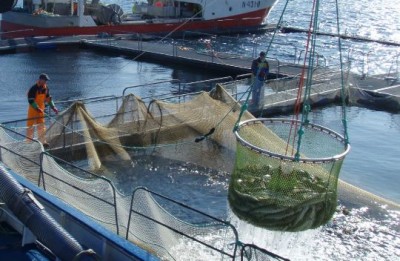Norway’s huge fishing industry smells of fraud, suggests a new survey that’s alarmed authorities and the researchers who conducted it. They found that fully 40 percent of fishermen and those purchasing their fish think it’s acceptable to underreport the size of the actual catch and their sales transactions.

The fish have been jumping off the Norwegian coast lately, with cod especially found in unusually large quantities the past few years. That apparently has also prompted many fishermen to catch and sell much more fish than they report. The so-called juks (roughly pronounced “yoox” and literally translated as “cheating”) is widespread, reported both newspaper Dagens Næringsliv (DN) and Norwegian Broadcasting (NRK) on Tuesday.
Even though fishing authorities have imposed major controls on the industry and uncovered few cases of fraud, officials at the state-owned food research firm Nofima say there are simply too many transactions and too many players to catch those catching more fish than they account for.
“It’s not easy to measure the extent of the fraud,” researcher Marianne Svorken at Nofima in Tromsø told DN. “There’s probably a lot of it behind the official numbers.”
Big black market
Svorken and her colleague Øystein Hermansen reached that conclusion because of the survey they conducted that drew a response from around 300 people who either work on the fishing boats or buy their fish. The response rate was considered to be high, according to the researchers. By revealing that underreporting of actual catches and sales is common and accepted, and even encouraged by some wholesalers, Hermansen said the fraud can amount to hundreds of millions of kroner worth of black-market business. The suspected fraud can also skew the quota systems put in place to ensure sustainable fishing stocks.
Jan Georg Christophersen, a 74-year-old Norwegian lawyer, wrote a report on organized fishing crime in the North Atlantic for the state fisheries ministry in 2011. “We have to stop calling this simple cheating or creative bookkeeping,” Christophersen told DN. “This is nothing less than hard-core organized crime.”
He uncovered a big gap between what fishermen reported and what actual transactions revealed. “And it’s too simple to say that the fishermen are often under pressure from criminal customers,” Christophersen told DN. “They go along with this because it’s in both their interests.”
Image of honesty
Jan Skjærvø, secretary general of the fishing industry organization Norges Fiskarlag, looked forward to read the entire Nofima report, claiming that he thinks its 40 percent figure was very high. “I’m not aware of anything like that,” Skjærvø claimed. “Regardless, this is something that I take very seriously.” He said the organization he leads expects that both those fishing and others in the business follow laws and rules.
Aksel Reidar Eikemo of the state fishing directorate said he thinks the fraud suspicions are based on both rumor and truth, but claims the fishing industry is mostly made up of law-abiding players. “We have always based our operations on honesty and legality, and think that’s the situation,” Eikemo told DN but admitted that only around 2-3 percent of all fishing catches are actually controlled.
Christophersen was candid and bordering on brutal in his assessment of commercial fishing in Norway: “Some folks are clearly still interested in presenting an image of downtrodden fishermen sitting in their boats and having a hard time,” he told DN. “That’s not how it is, actually quite the contrary. Just take a tour along the coast and you’ll see the wealth.”
Christophersen sees no “quick fix” to the fraud and thinks it’s the attitudes of those involved that must be changed. “They have to think differently, and learn that they need to hold themselves within the framework,” he said, referring to the quotas set by Norwegian authorities that are aimed at stabilizing and preserving fishing stocks. “They can’t just continue to cruise around and exploit our common resources.”
newsinenglish.no/Nina Berglund

